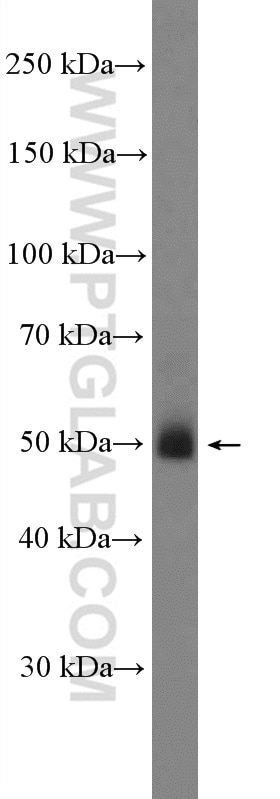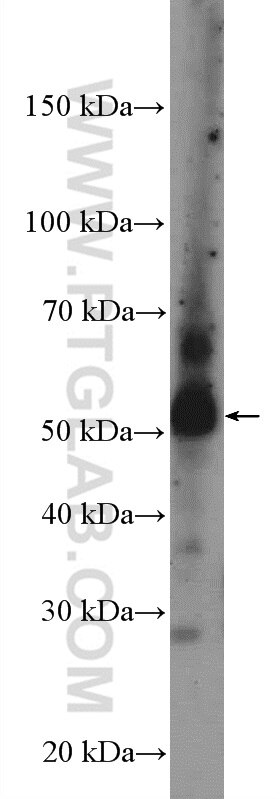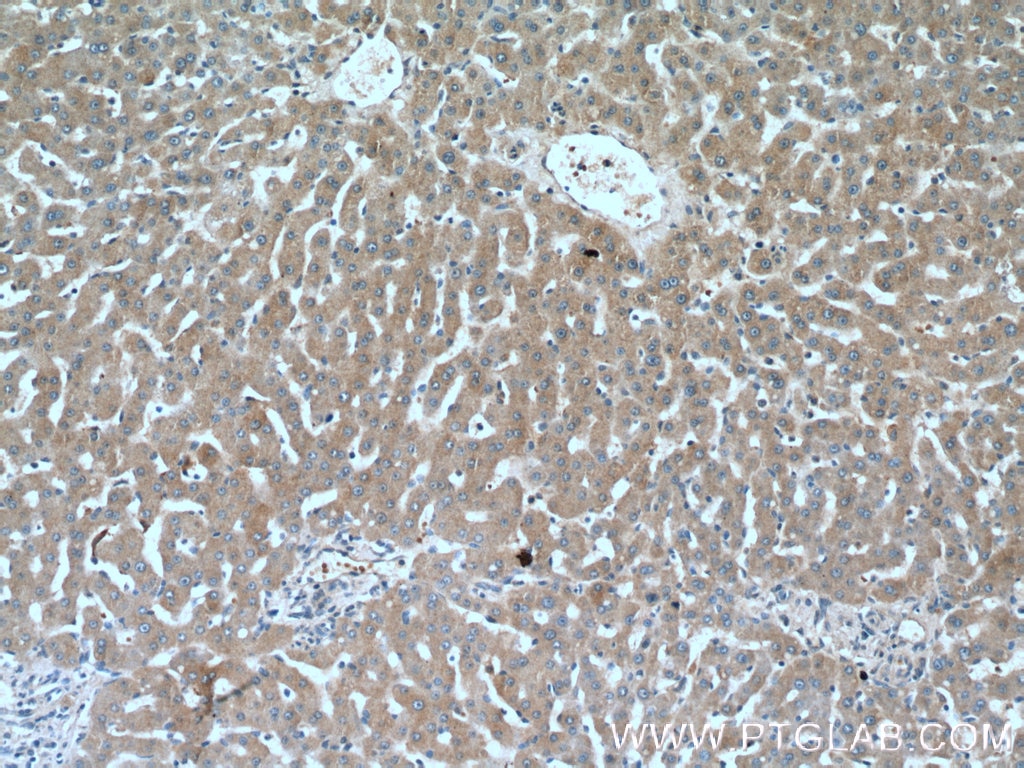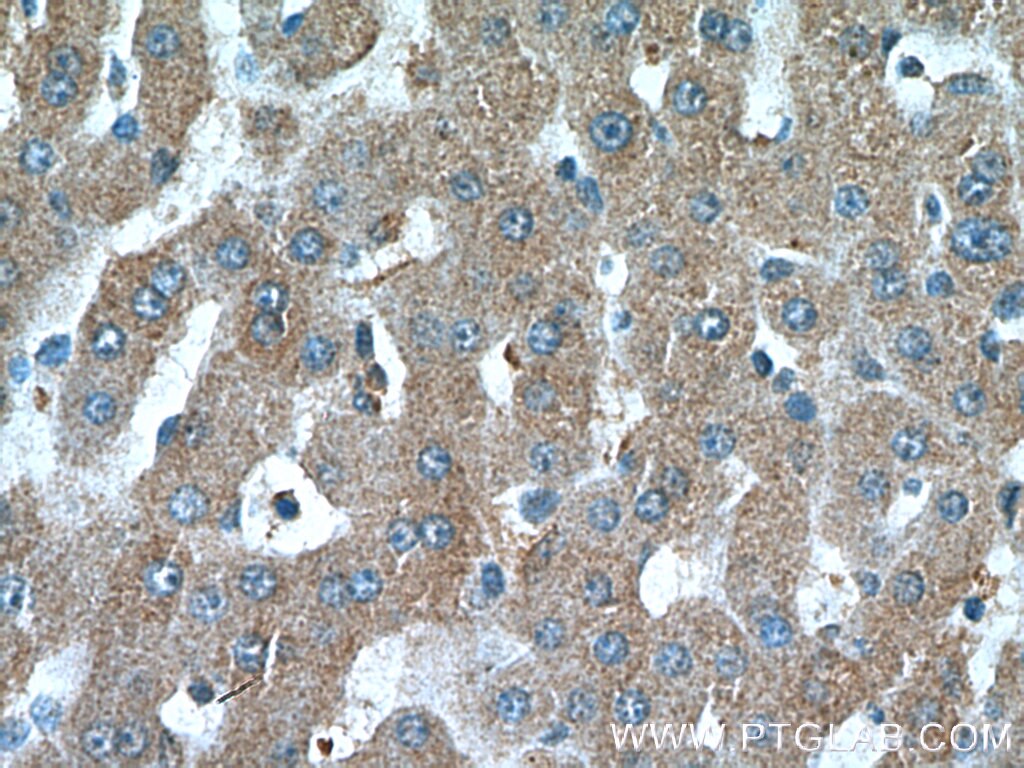Anticorps Polyclonal de lapin anti-ANGPTL3
ANGPTL3 Polyclonal Antibody for WB, IHC, ELISA
Hôte / Isotype
Lapin / IgG
Réactivité testée
Humain, souris et plus (1)
Applications
WB, IHC, ELISA
Conjugaison
Non conjugué
N° de cat : 11964-1-AP
Synonymes
Galerie de données de validation
Applications testées
| Résultats positifs en WB | cellules A375, tissu hépatique de souris |
| Résultats positifs en IHC | tissu hépatique humain, il est suggéré de démasquer l'antigène avec un tampon de TE buffer pH 9.0; (*) À défaut, 'le démasquage de l'antigène peut être 'effectué avec un tampon citrate pH 6,0. |
Dilution recommandée
| Application | Dilution |
|---|---|
| Western Blot (WB) | WB : 1:500-1:2000 |
| Immunohistochimie (IHC) | IHC : 1:50-1:500 |
| It is recommended that this reagent should be titrated in each testing system to obtain optimal results. | |
| Sample-dependent, check data in validation data gallery | |
Applications publiées
| WB | See 2 publications below |
Informations sur le produit
11964-1-AP cible ANGPTL3 dans les applications de WB, IHC, ELISA et montre une réactivité avec des échantillons Humain, souris
| Réactivité | Humain, souris |
| Réactivité citée | rat, Humain |
| Hôte / Isotype | Lapin / IgG |
| Clonalité | Polyclonal |
| Type | Anticorps |
| Immunogène | ANGPTL3 Protéine recombinante Ag2573 |
| Nom complet | angiopoietin-like 3 |
| Masse moléculaire calculée | 460 aa, 54 kDa |
| Poids moléculaire observé | 54 kDa |
| Numéro d’acquisition GenBank | BC058287 |
| Symbole du gène | ANGPTL3 |
| Identification du gène (NCBI) | 27329 |
| Conjugaison | Non conjugué |
| Forme | Liquide |
| Méthode de purification | Purification par affinité contre l'antigène |
| Tampon de stockage | PBS avec azoture de sodium à 0,02 % et glycérol à 50 % pH 7,3 |
| Conditions de stockage | Stocker à -20°C. Stable pendant un an après l'expédition. L'aliquotage n'est pas nécessaire pour le stockage à -20oC Les 20ul contiennent 0,1% de BSA. |
Informations générales
ANGPTL3 belongs to the angiopoietin-like protein family. ANGPTL3 is mainly synthesized by liver cells and is notably expressed in kidney podocytes. Accumulating evidences have revealed that ANGPTL3 plays a critical role in both biological processes, such as lipid metabolism, angiogenesis and haematopoietic function and pathological changes, including atherosclerosis, carcinogenesis, nephrotic syndrome, diabetes, liver diseases and so on. Thus, ANGPTL3 may serve as a potential biomarker in these diseases.
Protocole
| Product Specific Protocols | |
|---|---|
| WB protocol for ANGPTL3 antibody 11964-1-AP | Download protocol |
| IHC protocol for ANGPTL3 antibody 11964-1-AP | Download protocol |
| Standard Protocols | |
|---|---|
| Click here to view our Standard Protocols |
Publications
| Species | Application | Title |
|---|---|---|
Cancer Sci Screening of novel serum biomarkers for gastric cancer in coastal populations using a protein microarray |





